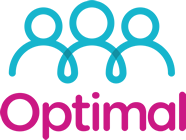Launched in April 2017 the apprenticeship levy was introduced by the government with the aim to raise £3bn a year to fund better training.
All businesses with a paybill over 3million each year now automatically pay into the Levy through the PAYE process. The deductions are 0.5% of payroll and the government tops this up with a further 10%. That means for every £1 you pay, you have £1.10 to spend.
Although deducted like a tax these funds remain in your Levy Account which you can manage online and then spend. Although titled “apprenticeship” the funds can also be used for existing colleague upskilling through tailor-made higher apprenticeships. These Advanced apprenticeships now go as high as Level 7 which is the equivalent of a Masters Degree and cover topics such as strategic management.
Since the launch
In 2015, the government set a target to have 3 million new apprentices by 2020 and the introduction of the Levy was expected to assist with that goal. It appears upon initial reports that it may have had the opposite effect. There were 375,800 apprenticeship starts reported for the 2017/18 academic year, compared with 494,900 in 2016/17 and 509,400 in 2015/16, a decrease of 24.1 and 26.2 per cent respectively. One of the main reasons for the decline seems to be that employers are overwhelmed and sometimes confused by the new Levy process.
Benefits of utilising the Levy
Apprentices can be a great way to create new career pathways to ensure career progression within teams and staff retention.
The benefits of offering advanced apprenticeships to employees can be very beneficial to every business. If you have long-serving employees who have reached the highest level of pay for their role it can be difficult to think of new ways to incentivise them. If we use Hertzberg’s Theory, you will see we tend to look after the Hygiene Factors first and foremost and can often overlook the real motivators.

Employees who have access to training and development are shown to feel more valued and therefore more committed to the business. Current recruitment trends show that individuals are taking more control over their careers and if they see no progression internally, they will seek what is available elsewhere. A great way to stop this within your teams is to ensure there are clear career pathways and routes for progression within the business.
Incentives
Businesses with a payroll of less than 3m will not pay into a Levy however they can still gain access if they wish to hire an apprentice and or enrol existing employees on an advanced apprenticeship programme. The government will fund 90% and therefore you will only need to pay 10% of the cost of the training. This is a very significant saving, and so far there is no indication of how long this offer will remain available. As an example, you could qualify a new manager and provide them with additional knowledge and guidance for a reduced cost of £500 rather than the usual £5,000. The payments are broken down over the full duration of the apprenticeship programme and can be as little as £20 per month.
For small businesses with under 50 employees, the government will fully fund all apprenticeship training for any 16-18 year-olds joining the business. That means you will pay nothing towards the cost of the training and qualification.
Employers who recruit 16-18 year-olds will also receive an added bonus payment of £1,000 per qualifying apprentice within the business.
Expiry
All funds in the Levy account will expire within 24 months. That means everyone who started paying into the Levy at the beginning of April 2017 will only have until April this year to spend it before it expires.
What are your thoughts?
Have your say in the comments below …



